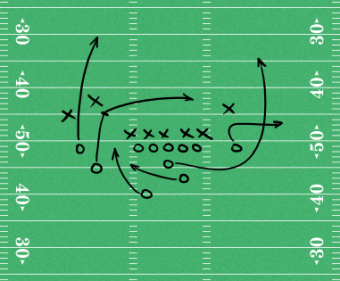 Professional coaching could be “just what the doctor ordered” for those seeking help in finding and following their call.
Professional coaching could be “just what the doctor ordered” for those seeking help in finding and following their call.
A growing number of physicians are disenchanted with their clinical practice but may have difficulty pursuing a new calling. The resulting dilemma creates an opening for a coaching relationship. A professional coach—such as Freelance MD author, Ashley Wendell —could be the right “prescription” for physicians in transition.
Deep within every heart is a longing for meaning, a quest for purpose. But for most of us, the search for meaning is a journey. And physicians are no exception. They will need a plan for the journey, a roadmap for success. When they get to a “fork in the road,” they may need help in deciding which way to go. They may encounter dangers and detours along the way and need guidance to be able to slow down and avoid disaster. And, they will need a friend for the journey.
1. Callings: In Search of a Real Life
Calls may come in many disguises. They may be calls to do something or calls to be something. They may be calls toward something or calls away from something. They may be calls to change something. Or they may be calls toward whatever we’ve dared ourselves to do for as long as we can remember.
Coaches can help their physician clients explore the psychological, spiritual, and practical processes they encounter in listening and responding to their callings. While honoring a calling’s essential mystery, coaches may also help their physician clients explore the questions that bloom naturally in the presence of a calling: What does it ask of us? How do we learn to separate our calls from the background noise in our lives? How do we tell the true call from the siren call—an enticing appeal for something alluring but potentially dangerous. How do we handle our resistance to it?
The challenge in coaching is to help us know whether our calls are true or false, to know how and when to respond to them, and to know whether a call really belongs to us or not. This requires the coach to help their clients tread a path between two essential questions: “what is right for me?” and “where am I willing to be led?”
2. Finding Your Call
Coaching can help physicians “find their path” by exploring what their life and talents are calling them to “do.” Coaches can facilitate this process by helping their clients clarify their values, beliefs, and purpose.
Perhaps the biggest challenge in helping physicians find their path is to get them to slow down or stop long enough to “take the call.” We belong to a work-obsessesed culture whose busyness-as–usual makes us forget when to “knock-off,” or stop doing something.
Coaching can also help cultivate the key social roles and relationships of their clients. This can help them define how they will schedule their time in to specific roles and activities that represent what their passion and purpose are all about. Similarly, it can be used to help them define what roles and activities in their current schedule need to be reduced or eliminated if they are going to live with authenticity.
The next step is to help their clients learn to stop looking for answers. Instead, they should concentrate on asking questions. Asking questions seems to engage us in a way that makes hearing our inner guidance more possible. Nothing shapes our lives so much as the questions we ask.
3. Turning Resistance Into Response
We all have a part of us that fears change and reacts to it with a reflexive flinch, the way snails recoil at the touch. A calling, however, is a messenger of change, and by ignoring it, we risk the corrosive effects of avoidance and tempt wake up calls. Responding to a call means doing something about it. A calling requires action, decision-making, and change.
Resistance may actually be a good sign. It could mean we are close to something vital and the calling is worthy of us. The degree of resistance is usually equal to the amount of power waiting to be unleashed. Coaches can provide the “push,” much like an eagle in teaching its young to soar.
If the calling we seek becomes the treasures, the obstacles to their path become the tests of commitment. We must be willing to be “shaken up.” Stress often prompts breakthroughs, crises point toward opportunities. A call “rocks the boat” because it often points to our passions.
Generally, people won’t pursue their callings until the pain of doing so is exceeded by the pain of not doing so. The main reason we ignore calls is that we know they will cost us something. To be authentic, we may have to give up something dear—a job, a house, a relationship, a belief, and a lifestyle to which we’ve become accustomed.
It is one thing to ask ourselves the question, “What do I want?” It is another to ask ourselves—and to answer honestly: “What am I willing to give up or do to make this happen?” This is sacrifice—the “letting go” of something we feel is “holy” in our lives. It means stepping out of our “at home feeling” and leaving the familiar surroundings of our “birdcage.” Every sacrifice, every step toward action, every response to a call necessitates a “leap of faith” and is done without knowing the outcome.
Coaching can help us look at how we resist our callings, and what the challenges and blessings are from moving from “No” to “Yes.” Do we experience complete freedom to step out and make the most of our abilities? Or are we hindered, like many people, by our own doubts or your capabilities to fulfill our potential?
Coaching may help us discover how to overcome our trials, setbacks, and self-doubt as we press toward the reality of experiencing you dreams. The focus can be shifted from “Why is this happening to me?” to “What is the teaching here?” and “What can I learn from this?”
4. Following Your Calling
Much like college students who struggle to declare a major, students in the “school of life” often struggle to know and follow their passions. They exert great effort to negotiate the tight passages of career choice or career transition and to create a match between who they are and what they do—the best kind of success. These decisions need to be made from the heart more than the head. What’s at stake is a life of integrity, a life that honors passion and purpose.
Some may need all the help they can get in following their calls. Coaches can serve not only as their guide but also their friend.
Coaches can help their clients identify the emerging development tasks in your vision of the future, formulated as a “plan” for the next chapter of your lives. Coaches can also help their clients create a vital learning agenda, and make learning a major part of the next chapter of their lives. With this tool, they can learn when and how to take advantage of change in their lives by “holding on” to their values, “letting go” of bad habits, “taking on” new knowledge and skills, and “moving on” with their plan for the next chapter of their lives.
A growing number of physicians are looking for a practical guide to discovering their calling. They need help in nurturing the process of listening and following their calling, for creating meaning in their life and work. Professional coaching can provide the guidance they need to ensure a successful journey.





 1 Comment
1 Comment



